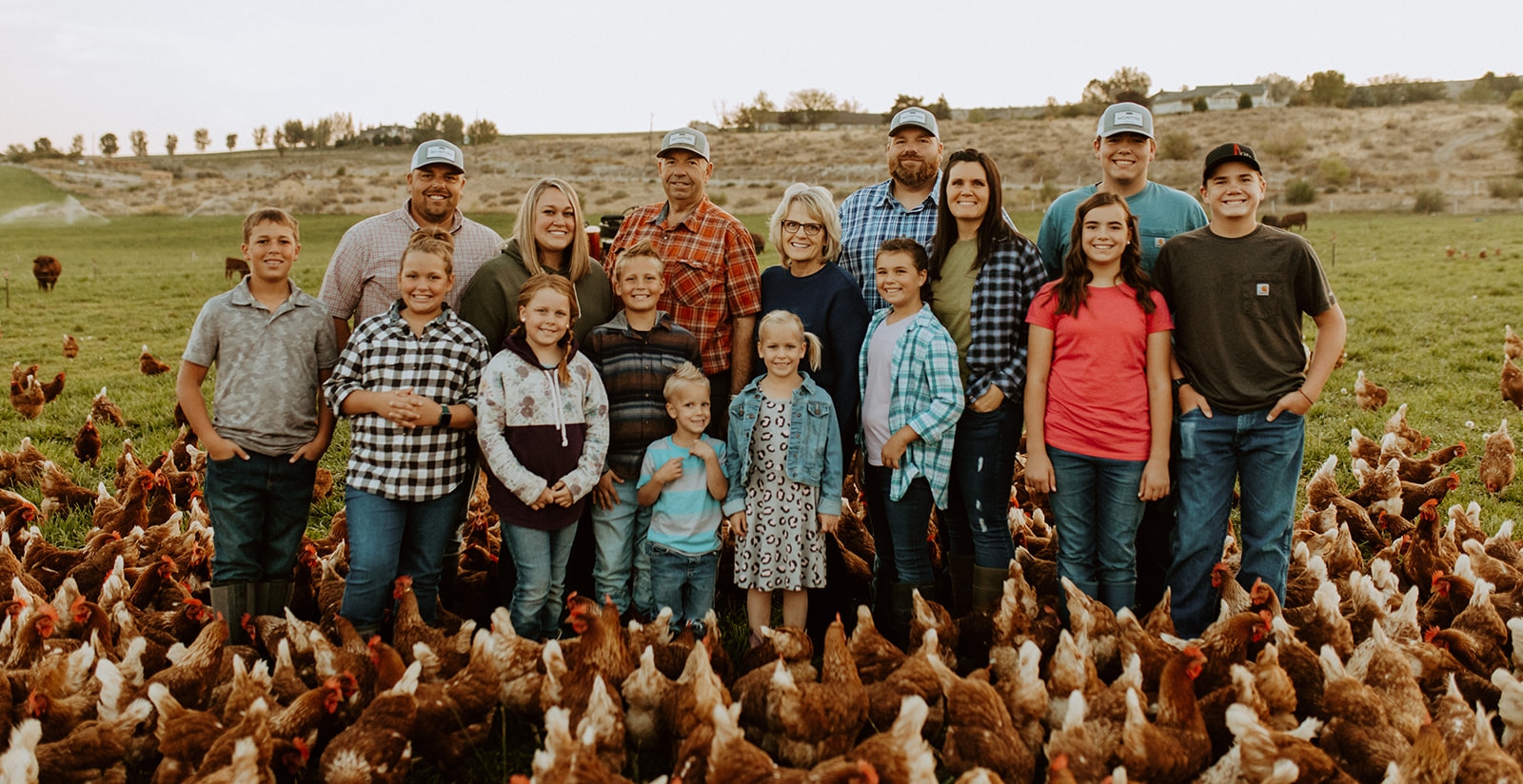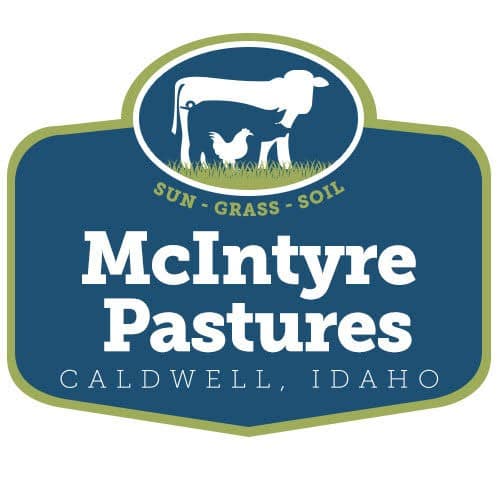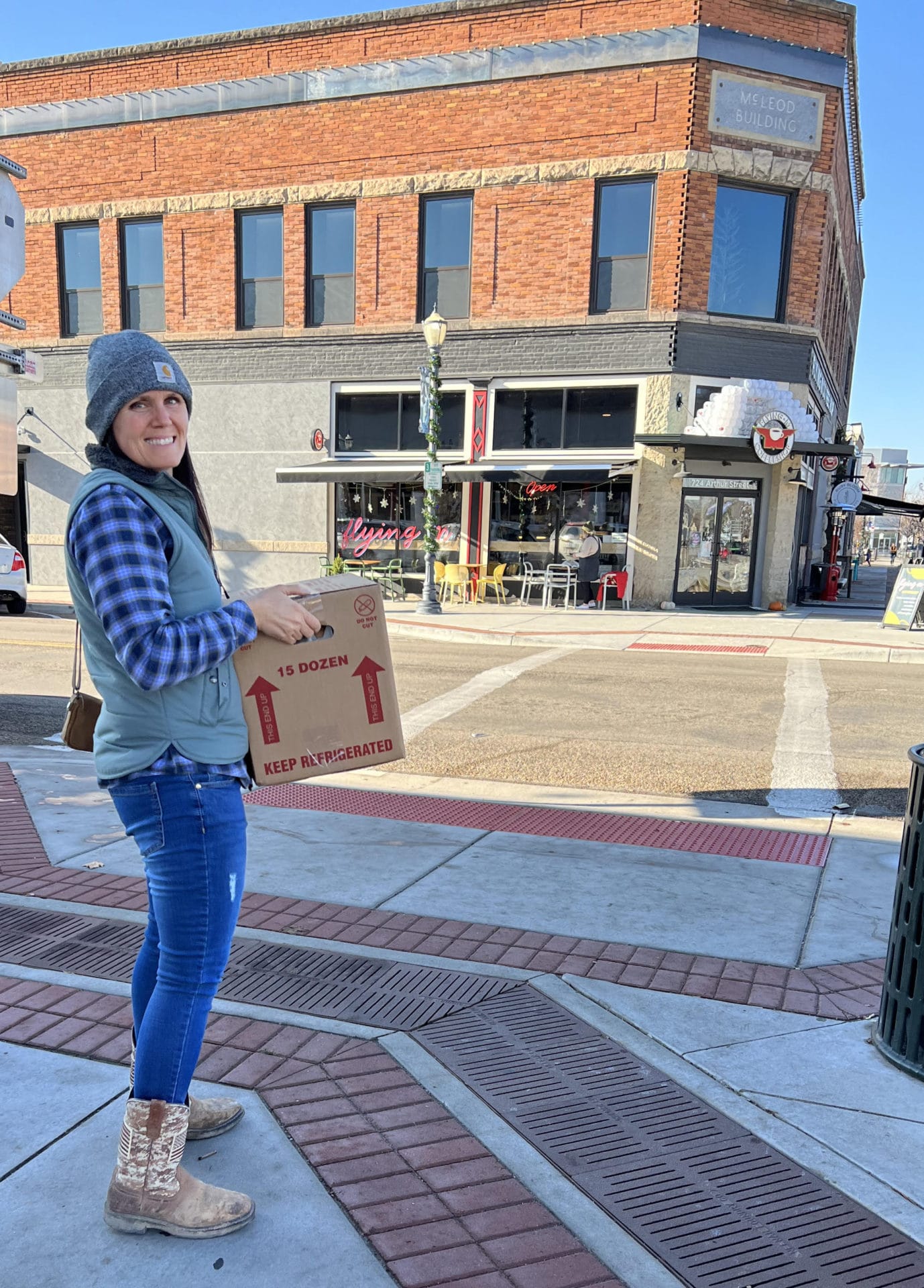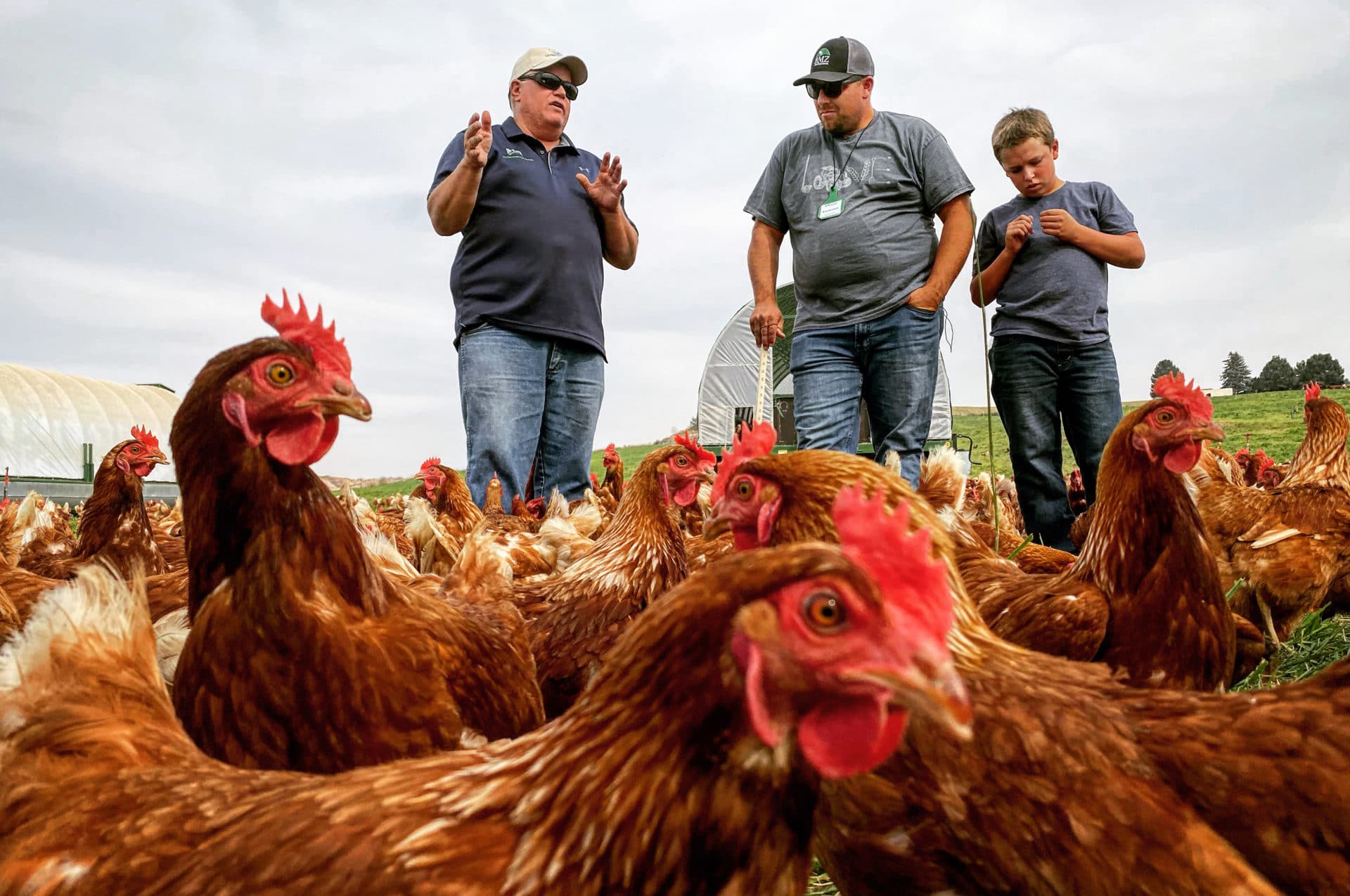
Thanks in large part to diverse pasture-raised product offerings and direct-to-consumer marketing, three generations of McIntyres (pictured here) have seen online sales top 10,000 orders in less than three years.
Regeneration Leads to Resilience for Idaho Family Farm
Every day, Brad McIntyre sees the many benefits of regenerative agriculture. And high on that list is the benefit of resiliency—a resiliency created by the healthy soil he and his family have been focused on regenerating since 2009.
And in 2013, when the family introduced animals into their Caldwell, Idaho farm, their soil health and the accompanying resilient-related benefits, really took off.
“From that point on, we started adding more and more cover crops, going more intense.” Brad says. “I wouldn’t say it’s been fast by any means. It’s a slow game and you just can’t expect huge successes—you’re going to have small successes—but they add up.”
Here’s how no-till, cover crops, good grazing management and increased diversity are providing resiliency benefits the McIntyre Family Farms:

More Resilient to Weather Extremes
This summer, McIntyre Pastures experienced 12 days of 100-plus degree temperatures. Throughout the month of July, the lowest high temperature in the area was 91 degrees. And despite only applying 100 units of nitrogen (and 30 units of fish fertilizer) per acre, his corn yielded an amazing 298 bushels an acre. Conventional fertilizer applications would have required more than 200 units per acre for similar yields and would have resulted in lower net profits.
“We were wondering how the really, really hot weather was going to affect some of our fields and those fields with the best soil health didn’t seem to be phased by it,” Brad says. “There’s a definite correlation between the health of our soil and the resiliency of the crops.”
More Resilient to Input Price Hikes
As input costs continue to increase and with near-record price hikes for synthetic fertilizers expected in 2022, McIntyre Pastures’ decreasing dependence on those inputs provides resilience to uncontrollable, external market forces.
“Fertilizer prices are going through the roof right now,” he says, “so I’m thankful that I can ask my soil to do some more heavy lifting when it comes to fertility through our cover crops. Now I can rest on the soil. I can rely on that, and I have faith in that.”
More Resilient Customer Base
When the impact of COVID disrupted food supply chains, resulting in empty grocery shelves in 2020, the McIntyres were well positioned, with animals and products ready to sell. Those additional customers are now part of McIntyre Farms’ increasingly loyal base.
“Just this year we hit our 10,000th on-line order for our products,” Brad says. “It’s been a long time in coming. The first year of taking online orders was 2026 we had 35 orders. It’s been this slow build and it’s so cool that people have trust in us to raise pastured proteins for them. We’re trying to do the best job we can and know how to for the health of the soil, which is seen in the health of our animals and contributes to the health of humans. Now we have this community around us that is supporting us with their dollars and with their trust.”
And with that trust comes a renewed excitement for farming for the McIntyres.
“When we have tours, people come out and are so excited, which is what renews us,” Brad says. “Seeing those positive reviews and comments keeps us excited about wanting to continue to produce. The soil health is getting better; the business health is getting better; and our biggest goal is that human health gets better.”
More Resilient to Development
More Resilient to Development
The more profitable business model has also put the McIntyres in a better position to invest back in their business and, by extension, their community. Having cultivated a loyal and dedicated customer base over the past five years, the McIntyres are currently constructing a new building to house their freezers and products. Once constructed, the front section of the building will serve as space for the on-farm store, thereby providing another marketing outlet for local customers and tourists visiting the nearby wine country.
“When customers can make it to the farm and see our practices, see how the animals live and understand the soil health connection better, it only makes them a stronger, more loyal customer,” Brad says. “Too often what’s missing, especially in our grocery stores, is that connection between the customer and their farmer.”

Maria McIntyre is pictured here delivering fresh, pasture- raised eggs to a local restaurant in Caldwell, Idaho.
In 2022, the family will open an on-farm store to meet growing local customer demand for their products.
A More Resilient Future
While admitting he can’t predict what the future may hold, Brad says he’s confident his family can continue their farming traditions that began more than 100 years ago—while also acknowledging those who have helped him along his regenerative journey.
“I’m just very thankful for SHA and Understanding Ag for spreading the message that has helped enable our success,” Brad says. “I think eventually I would have found it but our relationship with these organizations and individuals really put us on a springboard to start direct-marketing and other key practices. I’m humbled and super thankful to be where we’re at.”

The McIntyre farm has gained notoriety as a regenerative treasure in the Treasure Valley of Idaho. In 2020, it served as the host farm for one of SHA’s three-day workshops.
